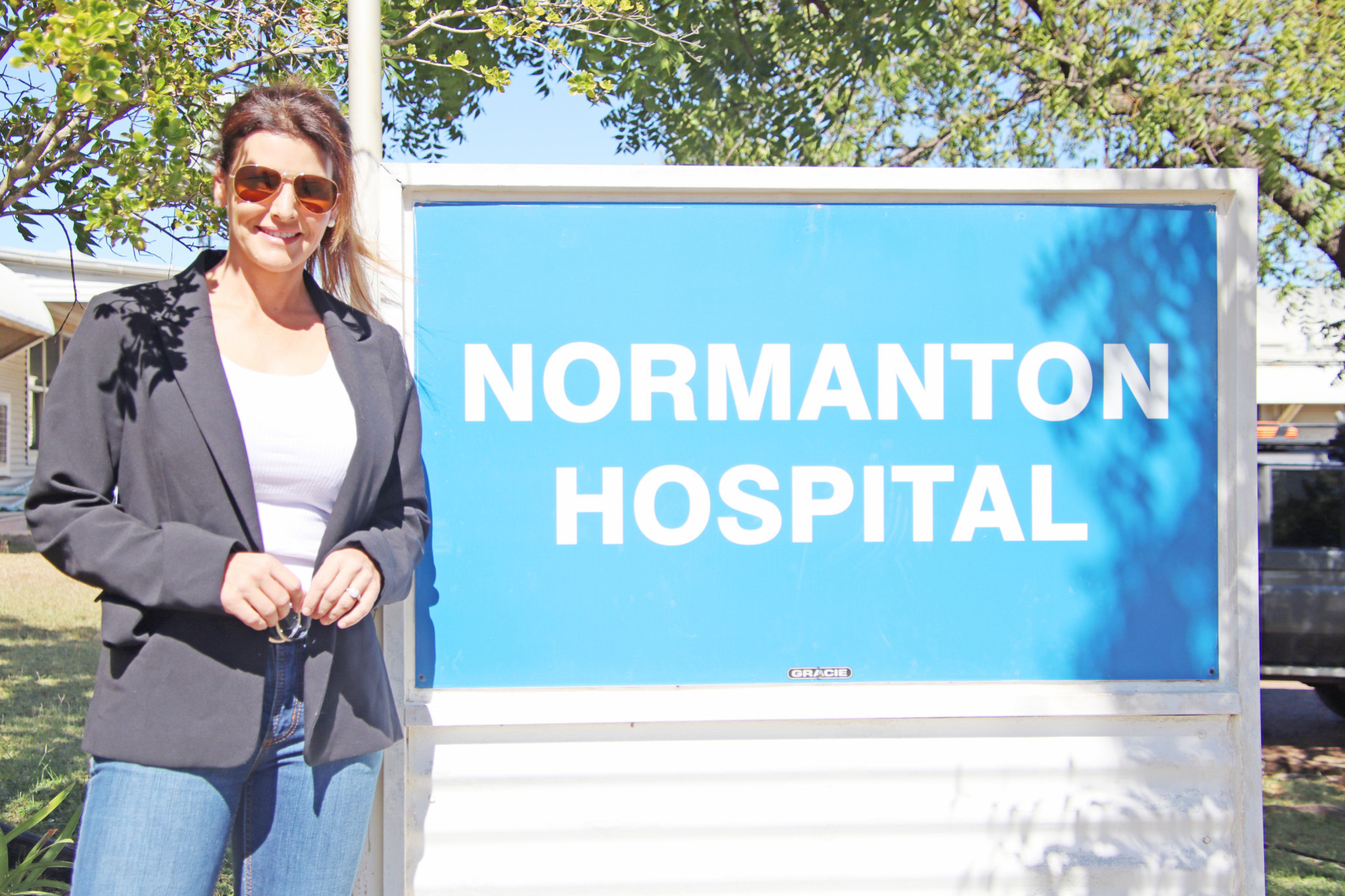General News
12 June, 2024
Statistics were wrong, says councillor out to improve health services in Gulf
A survey has revealed flaws in the North West Hospital and Health Service data.

Cherie Schafer knows first-hand the burden a lack of local health services can place on a family.
The lifelong Gulf resident, who was elected to Carpentaria Shire Council earlier this year, watched her father, Warwick Crossland, battle a decade long struggle with kidney failure until he passed away in 1999.
The family had been living on the Atherton Tablelands during her father’s long decline and she watched on as her mother was unable to work three days each week as she drove the 160km round trip to Cairns to ensure Warwick could receive haemodialysis.
So when Cr Schafer took on a new position within the North West Hospital and Health Service community advisory group in Normanton last year, she immediately knew she wanted to investigate how renal services could be better delivered in Normanton, where up to 60 per cent of the population are Indigenous.
According to the Australian Institute of Health and Welfare, dialysis hospitalisation rates are almost five times higher in remote areas compared to metropolitan cities, with Indigenous Australians being 10 times more likely to be hospitalised for dialysis.
Cr Schafer said there was a “window of opportunity” to focus efforts towards expanding Gulf renal services with a $40 million construction of a new hospital set to commence in Normanton later this year.
She added the new Normanton Hospital would include three chairs designated for self-dialysis patients and wondered whether these could be upgraded to include a community dialysis unit supported by trained staff.
Cr Schafer said she knew of multiple people in the region who had departed Normanton due to a lack of renal services and wanted to return but were unable due to their ongoing medical needs.
Through attending various community forums regarding the new hospital construction, Cr Schafer said she began to suspect there might be a lack of accurate data collected by NWHHS that was lowering the priority of renal services in the new hospital planning.
“Through this process of speaking to people in the health field- I felt that the statistics that were given about the community didn’t sound correct,” she said.
“We were being told that the statistics held at Mount Isa Hospital said there was only one patient requiring haemodialysis at Normanton – I felt this was not reflective of the actual statistics.
“The figures being given about renal needs seemed very low and, just being a local, I thought ‘what about this person?’ or ‘what about this person?’ The numbers didn’t add up. That’s what made me think about doing my own survey.”
Cr Schafer said the online survey earlier this year only received about 30 responses, but it was enough to trigger a desire for more information about the data collection undertaken by NWHHS.
Her survey found there were four haemodialysis patients from Normanton living away from home in both Cairns and Townsville.
The short survey also found there were at least three peritoneal patients in Normanton who may transition to haemodialysis in the coming years.
Cr Schafer said these findings spurred her to write to NWHHS in April requesting a meeting with senior officials.
Two months later and she was yet to receive a response.
However, just hours after North West Weekly lodged an enquiry, NWHHS representatives hastily contacted Cr Schafer and arranged a face-to-face meeting with chief executive Sean Birgan in Mount Isa on June 20.
A NWHHS spokesperson said, in a statement, there was no minimum patient requirement for providing haemodialysis services.
“We continually assess the needs of each community and explore ways to support dialysis patients locally wherever feasible,” the spokesperson said.
“We are open to collaborating with the Normanton community to gather more detailed data and ensure our services are aligned with the actual needs. We appreciate the efforts of community members like Cr Schafer in highlighting these needs and look forward to working together to improve local healthcare services.”
Cr Schafer said she hoped to use the June 20 meeting as an opportunity to uncover what additional actions the Normanton community could undertake to increase the likelihood of installing a community dialysis unit.
“I am really passionate about asking ‘what can our community advocates with the boots on the ground do to support North West Health achieve fully-functional services at Normanton?’” she said.
“We need to know what are the things that are holding up this service being placed in our community. Is it funding? Is it training? We want to work through the issues at a local level with North West health to try and get this up and running.”
NWHHS said all options were on the table when the hospital was upgraded.
“While these chairs are currently intended for independent haemodialysis patients, we are factoring in the potential for future nurse-supported haemodialysis patients,” the spokesperson said.
“All North West patients choosing peritoneal dialysis are currently supported in their own home where feasible. Two of these patients reside in Normanton.
“We have submitted an expression of interest for a community dialysis unit as part of the Better Renal Services for First Nations People budget measures, which includes a proposal for a four-chair dialysis unit.”
The spokesperson acknowledged there were at least three Normanton residents forced to live away from the Gulf due to a lack of appropriate renal services.